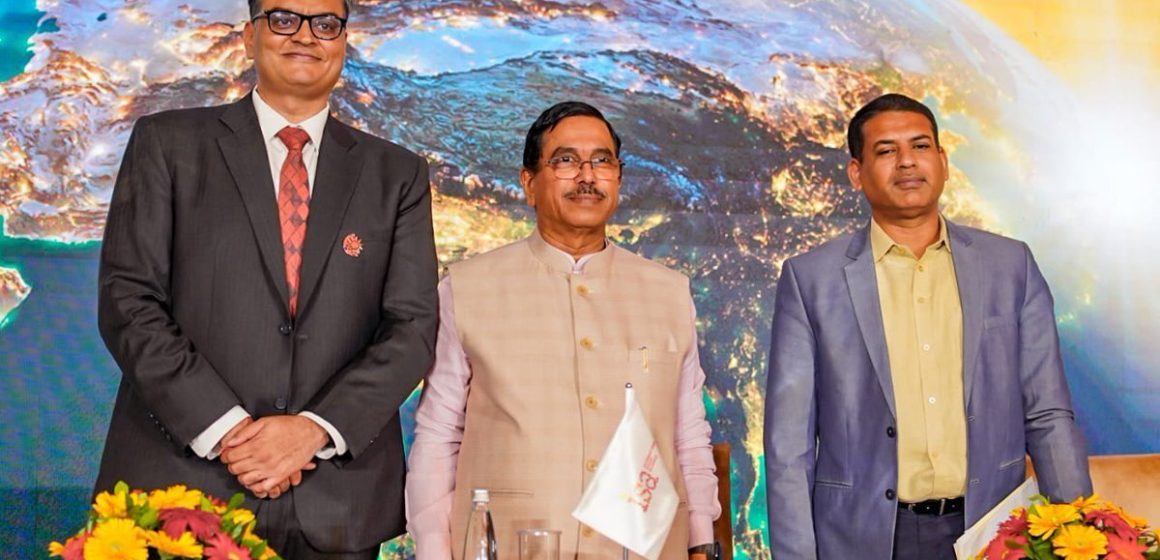Joshi said India’s renewable energy success goes beyond numbers and has become people-centric, with over 2 million households already benefiting from solar power under the PM Surya Ghar Muft Bijli Yojana.
India’s transition to green energy is not just reshaping its power mix; it is transforming lives at the grassroots, said Union Minister for New and Renewable Energy, Pralhad Venkatesh Joshi, at the curtain raiser for the Eighth Assembly of the International Solar Alliance (ISA) in New Delhi.
Joshi highlighted how decentralised solar initiatives are empowering rural communities, energising health centres, and equipping farmers with new tools.
“Our success story is more than just numbers; it is about the people,” he said. “With PM Surya Ghar-Muft Bijli Yojana, over 2 million households are already benefiting from solar power.”
India, he noted, achieved its renewable energy targets five years ahead of schedule, with non-fossil sources now accounting for over 50 per cent of installed electricity capacity. With approximately 125 GW of solar capacity, India ranks as the world’s third-largest solar producer.
Joshi also spotlighted the PM-KUSUM scheme, which aims to solarise the farm sector through three components: 10 GW of small solar plants, 1.4 million off-grid solar pumps, and 3.5 million grid-connected agricultural pumps.
“Together, these efforts are ensuring that clean energy reaches the last mile,” he said.
MNRE Secretary Santosh Kumar Sarangi added that India is now third globally in total renewable energy installations, fourth in wind power, and second only to China in solar module manufacturing. He also pointed to India’s green hydrogen ambitions, with a target of 5 million tonnes by 2031.
Sarangi commended ISA’s role in fostering cross-learning and deployment across member countries, noting India’s readiness to support similar initiatives abroad. “Some of the deployment experiments in Africa have shown encouraging results,” he said.
Global South Must Take Lead
ISA Director General Ashish Khanna announced that renewables had reached 1,000 GW globally in just two years, compared to oil, which took 25 years to achieve the same milestone.
“For the first time, renewable generation has surpassed fossil generation. This is a decisive moment for the Global South to lead,” he said.
Khanna outlined ISA’s evolving role as a platform for aggregation and delivery, advancing solar deployment through harmonised standards, data-driven planning, and innovation. He also highlighted India’s potential to become the ‘Silicon Valley for Solar’ through the Global Capability Centre (GCC), linked with STAR-C hubs worldwide.
The Eighth ISA Assembly, scheduled for October 27-30, will focus on four strategic pillars: catalytic finance, global capability and digitisation, regional engagement, and technology roadmap and policy. ISA will also release two flagship reports—‘Ease of Doing Solar 2025’ and ‘Solar Trends 2025’—mapping global progress and pathways to scale.


